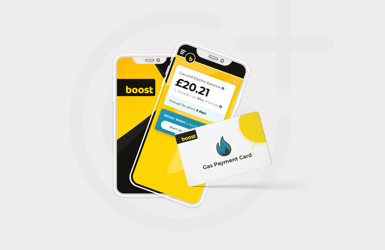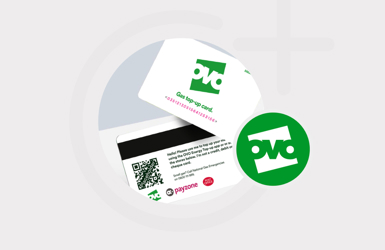Payzone Blog
-

Latest News
Payzone Plus Case Study Blog - Davie's story
In the heart of Glasgow's East End, Davie's Mobile Grocery Shop is redefining convenience retail. Operating from a van, Davie's store on wheels brings everyday essentials and vital services directly into the community.
Read more
-

Latest News
Strathclyde Partnership for Transport
Launching across all Payzone stores in the Strathclyde region, Payzone has won the exclusive contract with Strathclyde Partnership for Transport (SPT).
Read more
-

Latest News
Introducing Boost Electricity, Gas and Smart Meter Top Ups
Payzone is pleased to announce that Boost Electricity has joined the Payzone and Post Office network.
Read more
-

Latest News
Introducing OVO Electricity Keys, Gas Cards and Smart Meter Top Ups
Payzone is pleased to announce that OVO, a leading supplier of energy, has joined the Payzone and Post Office network.
Read more
-

Latest News
We are excited to announce our brand new partnership with Amazon, coming to all Payzone stores across the UK! Retailer can now provide an Amazon top up service in-store, allowing customers to add funds to their Amazon account.
Read more
-

Retailers
Support From Utilita Energy Hubs
The first Utilita Energy Hub opened in 2018 as there was a demand to bring face to face dialogue to the retail energy sector. We wanted to find out more about the great work people like Paula do.
Read more
-

Retailers
Payzone has signed a long-term contract with Utilita, which means retailers can offer Utilita bill payment solutions to customers in all Payzone stores.
Read more
-

Retailers
Jisp's Scan and Save technology
Payzone and Jisp have partnered on the launch of a new loyalty proposition that will enable Payzone retailers to offer integrated home delivery, click and collect, and store specific loyalty promotions using Jisp’s ‘Scan and Save’ technology.
Read more
-

Retailers
ScottishPower bill payments now live!
Payzone has signed a long-term contract with ScottishPower to offer bill payments which means retailers can offer this payment solution to customers in all Payzone stores and Post Office branches.
Read more
-

Customers
Top Tips to Help You Save Water at Home
Reducing water consumption in your home is beneficial for many reasons, it can lessen your energy consumption and lower your bills, something we’re all striving toward during these tough times.
Read more
-

Latest News
Energy Price Rises - Help and Guidance
Many of us have been affected by sharp rises in energy prices. If your customers are feeling stuck, see if our guidance can help.
Read more
-

Product Information
Simple, secure, inclusive and accessible cash payments or energy top-ups.
Read more
Ready to learn more?
Increase revenue and drive in footfall. It's simple with Payzone Bill Payments.
Call us free on: 0800 0566 015